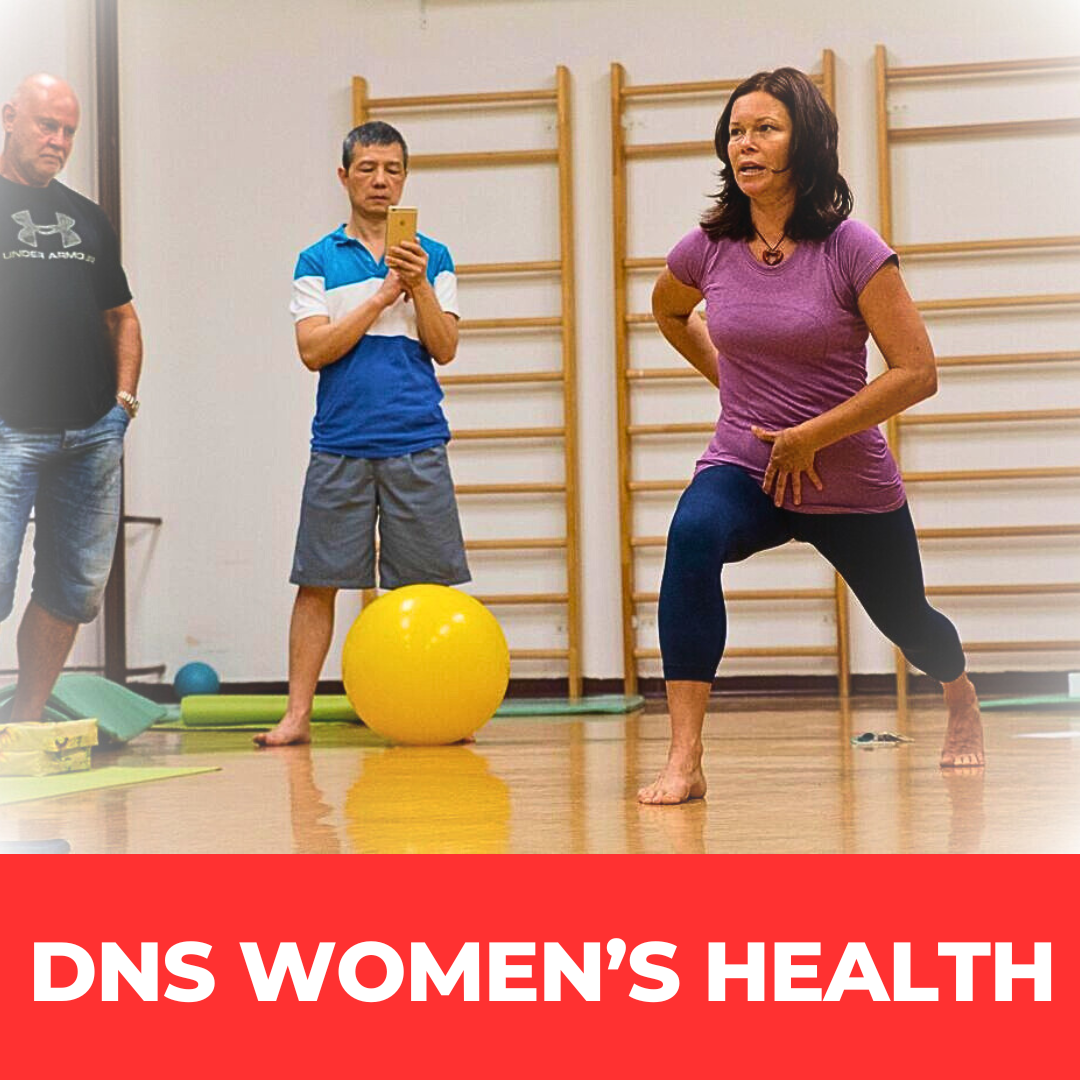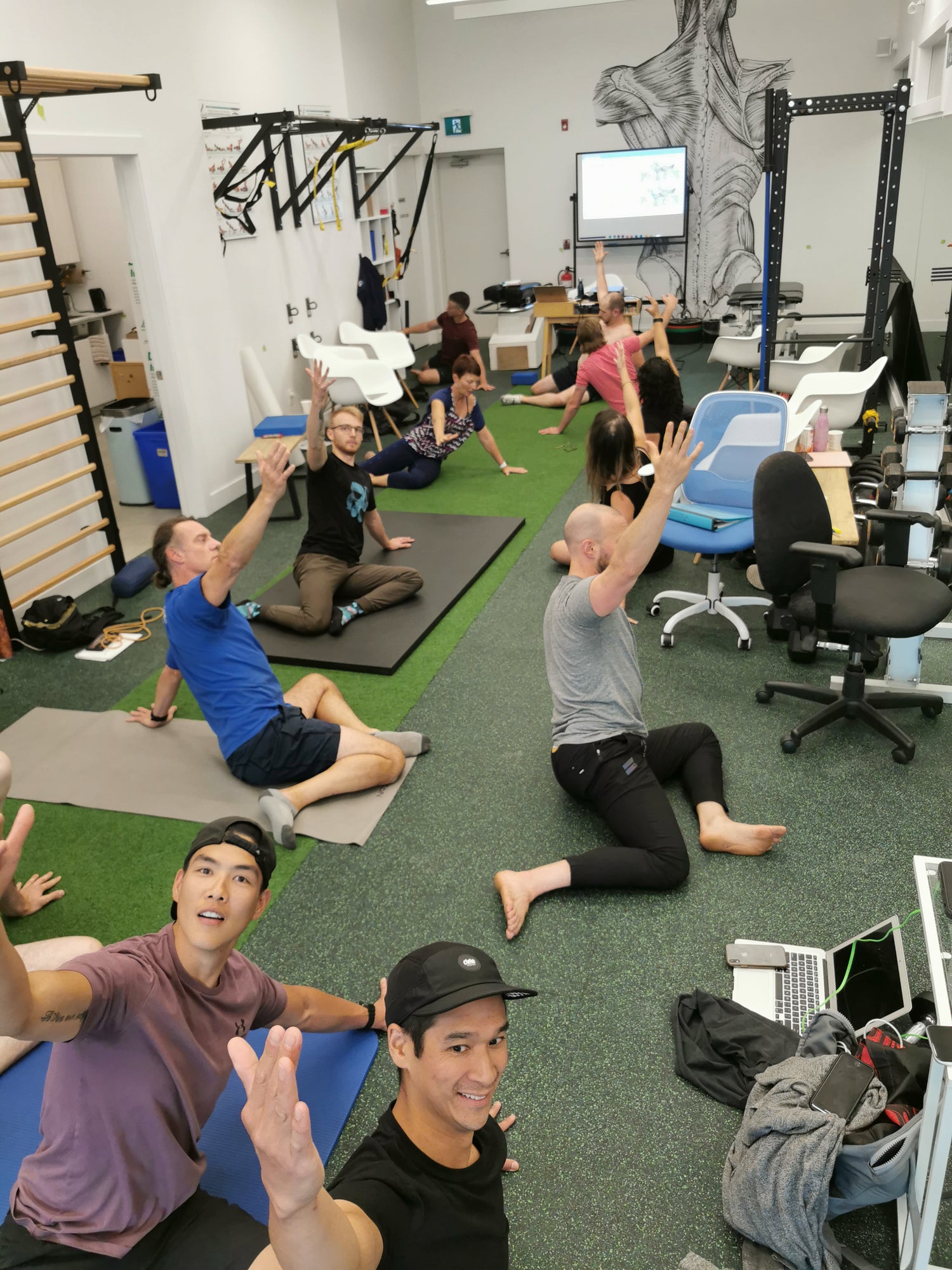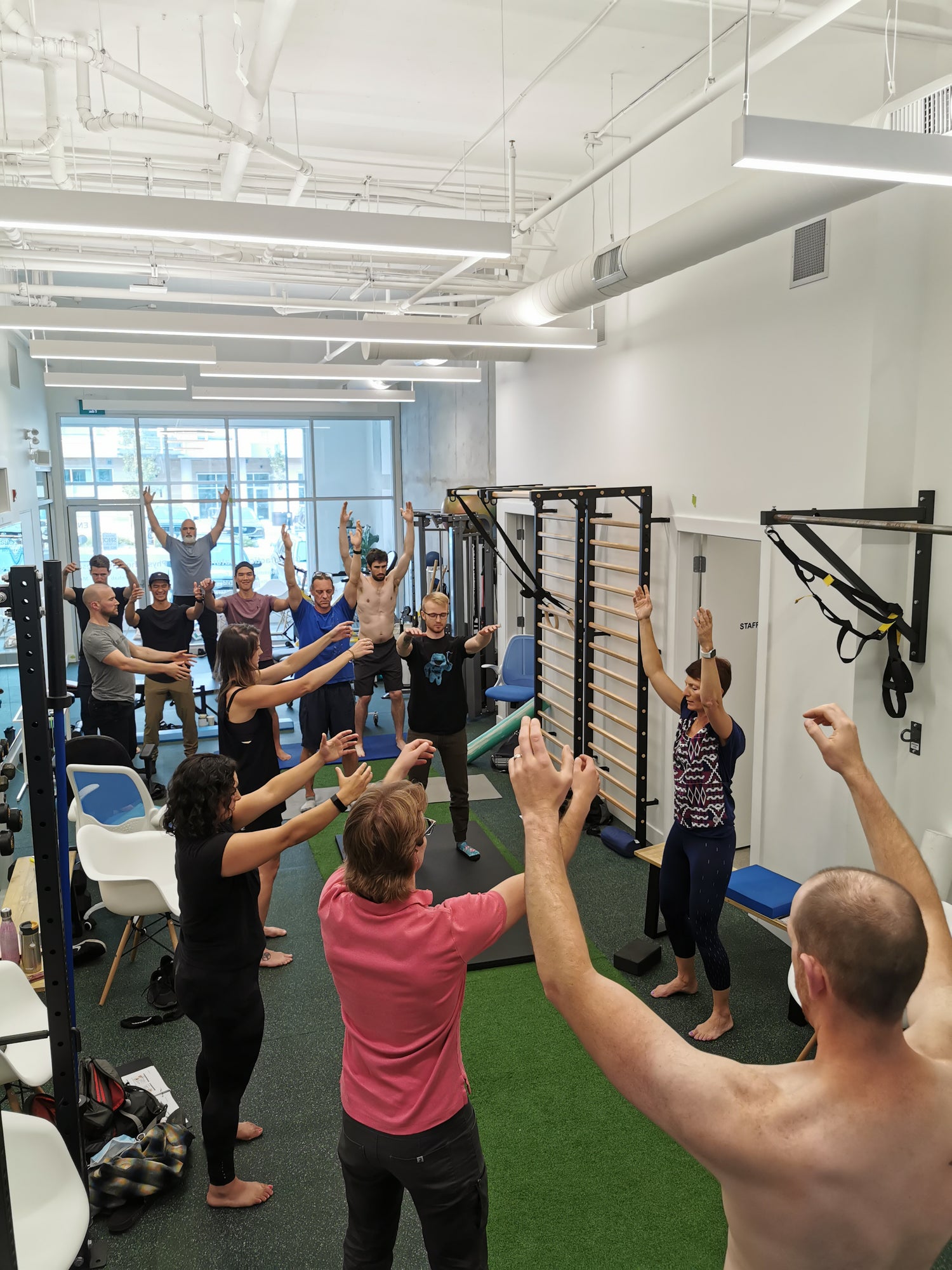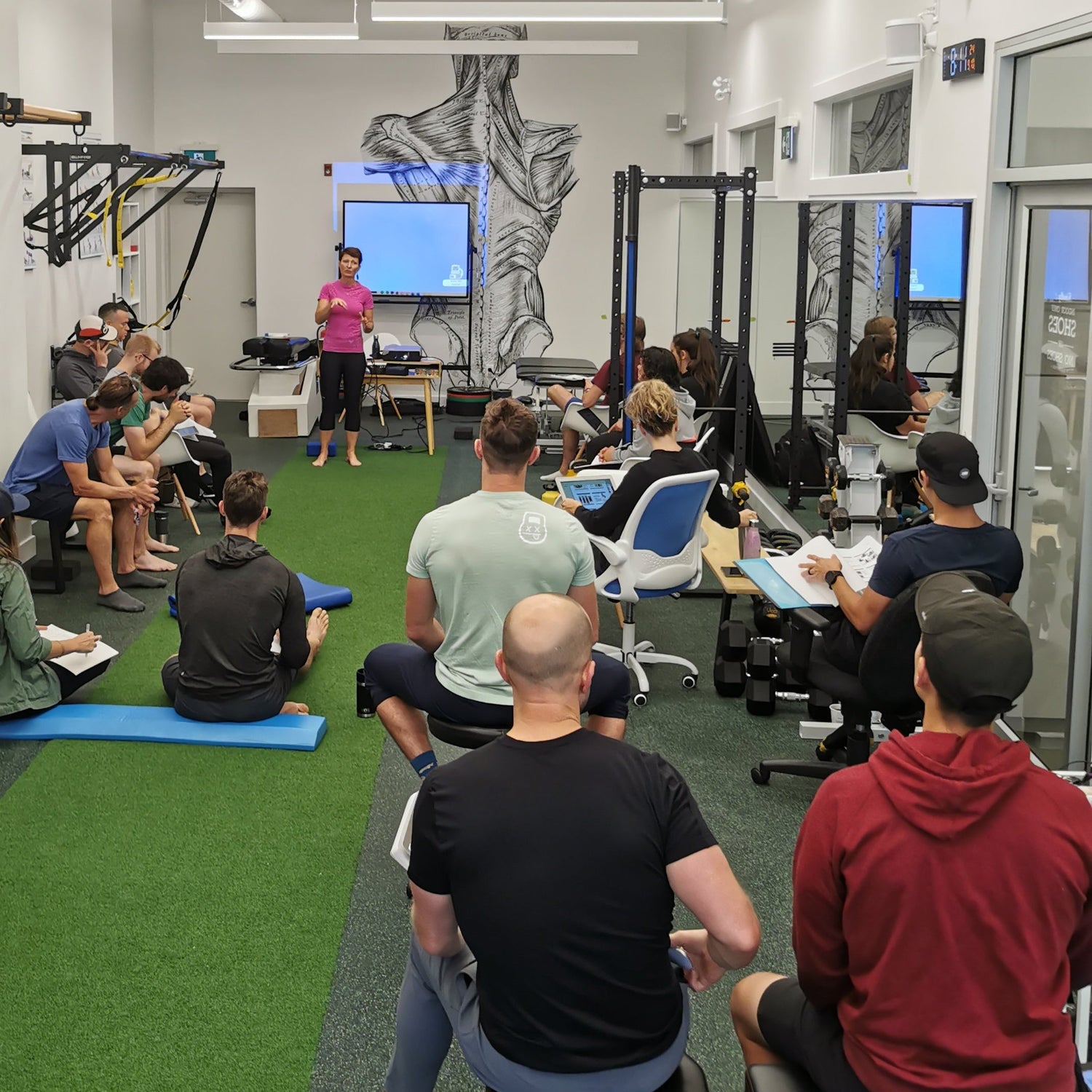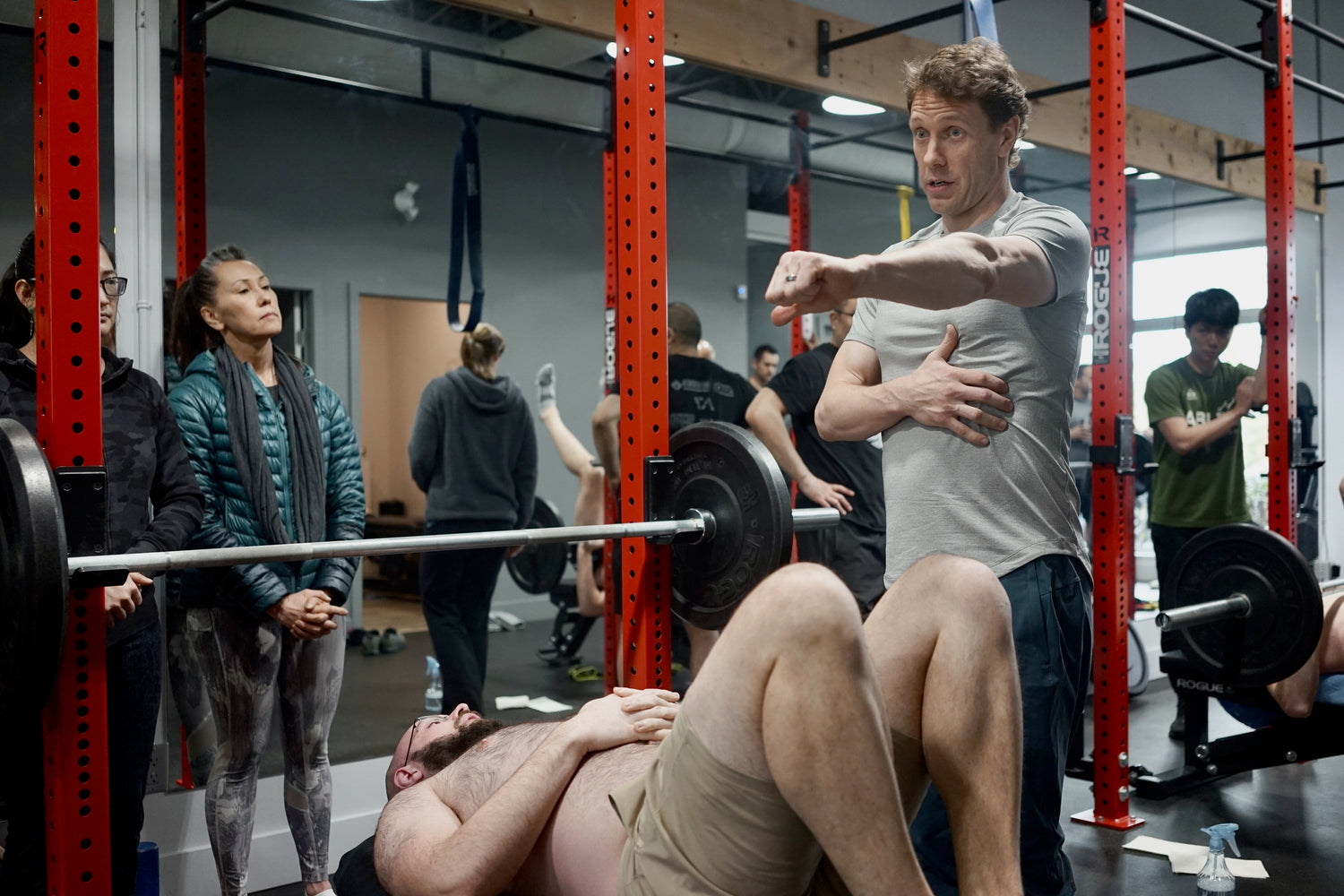Description
DNS Women's Health courses feature application of DNS principles, concepts and skills, combined with manual and self treatment techniques for the specific population of women with pelvic floor dysfunction, incontinence, and prolapse.
This course is for clinicians and has the pre-requisite of DNS Clinical A or DNS Exercise 1 course
Course Highlights
This DNS Skill Courses is a 2-day, 14 hour courses, featuring a strong practical components, with a 65:35 practical-theory ratio.
DNS Women's Health courses feature application of DNS principles, concepts and skills, combined with manual and self treatment techniques for the specific population of women with pelvic floor dysfunction, incontinence, and prolapse.
What You Will Learn
- Basic principles of developmental kinesiology with an emphasis on development during the first year of life.
- The relationship between development during the first year of life and pathology of the locomotor system in adulthood.
- Functional relationship between diaphragm and pelvic floor Assessment of the integrated stabilizing system of the spine utilizing dynamic functional tests with a focus on pelvic floor.
- Assesment of pelvic floor muscles.
- Scar examination and soft tissue techniques for, “active scar” treatment using barrier phenomenon according to Lewit.
- Manual techniques and for relaxation and activation of pelvic floor muscles.
- Self treatment techniques for pelvic region Integration of the pelvic floor into global movement patterns.
- Foot support, hip mobility, stability and pelvic floor muscles relationship.
- Corrective exercises based on developmental positions for patients with pelvic floor dysfunction, urinary stress incontinence, dysmenorhea and constipation.
- Pregnancy - importance of diaphragm and pelvic floor
Course Outline
Day 1
Hour 1-2: Pelvic floor from the view of developmental kinesiology. Pelvic floor function/Dysfunction. Functional sterility, dysmenorrhea, amenorrhea and other types of gynecological dysfunctions.
Hour 2-3: Soft tissue techniques for the chest, low back, abdominal wall, hips.“Active scar” treatment using
barrier phenomenon according to Lewit. Corecting respiration stereotype.
Hour 4-5: PF muscle relaxation techniques.
Hour 6-7: Isolated activation of PF muscles. PERFECT schema.
Day 2
Hour 8-9: Integration of PF muscle function into the muscle chains
Hour 10-11: Integration of PF muscle function into the muscle chains.
Hour 12-13: DNS principles for exercise during pregnancy, child birth and post partum exercise.
Hour 14: DNS principles for exercise during pregnancy, child birth and post partum exercise
Course Instructor
Martina Ježková completed her Physiotherapy Master’s degree in 2001, at the Faculty of Physical Education and Sport, Charles University, Prague. She was a student of esteemed Professors Janda and Lewit, whom she later worked with at the Rehabilitation Clinic, University Hospital Motol, Prague.
In her 17 years of clinical rehabilitation practice at the University hospital, Motol, Martina worked with a broad scope of patients, including babies with cerebral palsy and children with central coordination disturbance, scoliosis, neurological disorder patients, gynaecology patients with functional sterility, pelvic floor dysfunction and other pelvic health issues. She also worked with professional and amateur athletes and elderly patients, to develop movement optimization strategies. In 2018 Martina opened her own private physiotherapy practice, outside of Prague.
Martina was certified therapist in Reflex Locomotion according to Vojta since 2004 and attends regular refresher courses. She has completed numerous professional development and instructor level trainings, including: Development Kinesiology in Rehabilitation and Dynamic Neuromuscular Stabilization principles (with Prof. Pavel Kolář), Manipulative Therapy in rehabilitation and Post Isometric Relaxation, soft tissue manipulation and manipulation of spine and extremity with Prof. Karel Lewit and Functional Sterility assessment and treatment according to Mojžíšová. In January 2014 Martina completed her first Yoga Instructor certification in Australia. Since 2014 she has continued to study and incorporate Yoga as part of her approach to movement rehabilitation and in 2018, she became a certified Iyengar Yoga instructor. Martina has also completed short courses in Klapp crawling (based on developmental kinesiology), Kinesiotaping, Fascial manipulation techniques according Stecco,, fascial Yoga and Yoga for MS patients.
Martina closely works under Professors Pavel Kolar’s supervision and teaches movement rehabilitation approaches, both nationally and internationally. From 2002 to present, she has been an instructor in rehabilitation at the 2nd Faculty of Medicine, Charles University, Prague, teaching both Physiotherapy and Medical students. Since 2004, Martina has served as a certified instructor in Musculoskeletal Techniques according to Lewit and since 2001 as an international certified instructor in Developmental Kinesiology and Dynamic Neuromuscular Stabilization according to Kolář. Drawing from her clinical practice, Martina has also developed specialized DNS courses in Women’s Health and in the application of DNS principles to Yoga in Rehabilitation.
Certification
DNS is more than a course; it's a system of understanding human movement - posture and function - through a series of courses and a certification process. Eligibility requirements for the DNS Course D include:
- Completion of A – C courses and at least two additional DNS workshops. The additional DNS workshops may include repeated A-C courses, DNS skills review sessions, DNS special workshops e.g sports performance, neurological disorders, pediatrics, etc.
- Receipt of Certificates of Achievement in Courses A, B & C
- Application for Course D must take place no earlier than three years and no later than seven years, following completion of Course A.
- Demonstrate adequate handling skills that are evaluated by the respective instructors during workshop practice sessions.

